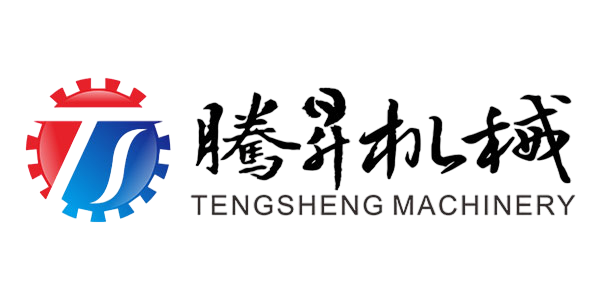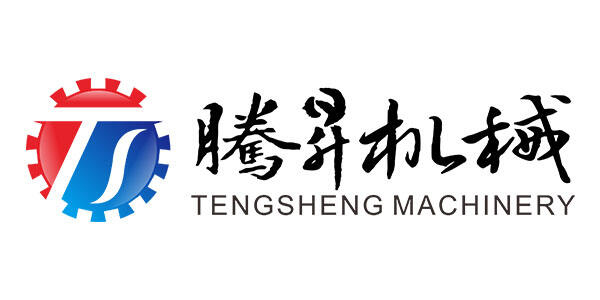In the fast-paced world of food manufacturing, every link in the production chain directly impacts efficiency, product quality, and market competitiveness. Among these critical links, vegetable peeling stands out as a fundamental process—especially for enterprises dealing with large volumes of vegetables such as carrots, potatoes, onions, and bell peppers. However, traditional manual peeling or low-grade peeling equipment often fails to meet the demands of commercial production, leading to issues like inconsistent peeling results, high labor costs, and excessive vegetable waste. To address these pain points, our commercial-grade vegetable peeling solutions are specifically designed to cater to the unique needs of food manufacturers, combining advanced technology, reliability, and user-friendliness to redefine the standards of vegetable peeling in industrial settings.
The Core Demand: Reliable Vegetable Peeling for Large-Scale Production
For food manufacturers, vegetable peeling is far more than a simple preparatory step—it is a decisive factor that influences the entire production schedule and final product quality. In large-scale production, manufacturers require vegetable peeling processes that are efficient, consistent, and hygienic. Manual peeling, while seemingly low-cost initially, is not only time-consuming and labor-intensive but also prone to human errors: uneven peeling may leave residual skin on the vegetables, affecting product appearance and taste, while over-peeling leads to unnecessary waste of raw materials. Moreover, manual operations are difficult to standardize, making it challenging to maintain uniform quality across batches— a critical requirement for food products sold in the market. Low-grade mechanical peelers, on the other hand, often lack adaptability to different vegetable types and sizes, resulting in poor peeling effects or even damage to the vegetables. Therefore, a reliable commercial-grade vegetable peeling solution is essential for food manufacturers to streamline production, reduce costs, and ensure product quality.
Key Features of Our Commercial-Grade Vegetable Peeling Solutions
Our commercial-grade vegetable peeling solutions are engineered with the needs of food manufacturers at the forefront, integrating multiple cutting-edge features to deliver superior performance in vegetable peeling. Firstly, the equipment boasts high automation: from feeding vegetables to completing the peeling process and discharging the finished products, the entire workflow can be operated with minimal manual intervention. This not only significantly reduces labor costs but also eliminates the impact of human factors on peeling quality, ensuring consistent results for every batch. Secondly, our solutions offer strong versatility—they can efficiently peel a wide range of vegetables, including root vegetables (carrots, potatoes, sweet potatoes), bulb vegetables (onions, garlic), and fruit vegetables (bell peppers, tomatoes). By adjusting the peeling parameters, the equipment can adapt to different sizes and textures of vegetables, avoiding the need for multiple specialized machines and saving production space.
Another standout feature is the precision of vegetable peeling. The equipment uses advanced abrasive technology or high-pressure water jet systems, depending on the vegetable type, to remove the skin gently yet thoroughly. This ensures that only the outermost skin is peeled off, minimizing the loss of edible parts and maximizing the utilization rate of raw materials. Additionally, hygiene is a top priority in our design: all parts in contact with vegetables are made of food-grade stainless steel, which is corrosion-resistant, easy to clean, and compliant with international food safety standards. The smooth surface of the equipment prevents the accumulation of dirt and bacteria, reducing the risk of food contamination and facilitating routine cleaning and maintenance. Finally, energy efficiency is integrated into the design—our vegetable peeling equipment adopts energy-saving motors and optimized workflow designs, reducing power consumption while maintaining high production efficiency, helping manufacturers lower long-term operational costs.
How Our Vegetable Peeling Technology Benefits Food Manufacturers
The application of our commercial-grade vegetable peeling solutions brings tangible benefits to food manufacturers across multiple dimensions. In terms of production efficiency, the equipment can process hundreds or even thousands of kilograms of vegetables per hour—far exceeding the speed of manual peeling or low-grade machines. This enables manufacturers to meet tight production deadlines, handle large orders efficiently, and expand their production capacity without increasing labor input. For example, a canned vegetable manufacturer that previously relied on manual peeling could only process 500kg of potatoes per day; after adopting our solution, the daily processing capacity increased to 5,000kg, significantly improving production efficiency and order fulfillment capabilities.
In terms of cost reduction, the reduction in labor costs is particularly notable. By replacing a large number of manual workers with automated vegetable peeling equipment, manufacturers can save on wages, social security, and other labor-related expenses. At the same time, the precise peeling technology minimizes raw material waste—statistics show that our solutions reduce vegetable waste by 15-20% compared to traditional methods, translating to substantial savings in raw material costs over the long term. Moreover, the durable design of the equipment ensures a long service life, reducing the frequency of repairs and replacements and lowering maintenance costs.
Product quality improvement is another key benefit. Consistent peeling results ensure that every vegetable processed meets the same quality standards, with no residual skin or uneven peeling. This enhances the appearance and taste of the final products, improving customer satisfaction and brand reputation. Additionally, the hygienic design of the equipment reduces the risk of food safety issues, helping manufacturers comply with strict food safety regulations and avoid potential penalties or reputational damage caused by contamination incidents. Finally, the user-friendly operation of our vegetable peeling solutions reduces the need for highly skilled operators—staff can master the operation and basic maintenance through simple training, lowering the threshold for use and reducing training costs.
Application Scenarios: Versatile Vegetable Peeling Across Food Segments
Our commercial-grade vegetable peeling solutions are highly versatile and suitable for a wide range of food manufacturing segments. In the canned food industry, where large quantities of vegetables need to be processed into canned products such as canned carrots, potatoes, and peas, our equipment provides efficient and consistent vegetable peeling to ensure the quality and uniformity of the canned products. In the frozen food sector, vegetables such as bell peppers, broccoli, and carrots used in frozen vegetable mixes or frozen ready meals require quick and gentle peeling to preserve their nutritional value and texture—our solutions meet this demand by minimizing damage to the vegetables during the peeling process.
For manufacturers of prepared meals and convenience foods, which often use a variety of vegetables in different forms, the versatility of our vegetable peeling equipment is a significant advantage. It can handle multiple vegetable types in a single production line, reducing the need for separate processing equipment and streamlining the production process. Catering chains with central kitchens also benefit greatly from our solutions—they can process large volumes of vegetables efficiently to supply multiple restaurant outlets, ensuring consistent quality and reducing preparation time. Additionally, our vegetable peeling equipment is suitable for juice and puree manufacturers, where peeled vegetables are used as raw materials to produce juices, sauces, and purees. The precise peeling ensures that no bitter or unpleasant-tasting skin residues affect the flavor of the final products.
Why Choose Our Commercial-Grade Vegetable Peeling Solutions Over Competitors
In a market filled with various vegetable peeling equipment options, our commercial-grade solutions stand out for several key advantages. Firstly, we prioritize customization—we understand that different food manufacturers have unique production requirements, such as processing capacity, vegetable types, and production line layouts. Therefore, we offer tailored solutions to meet specific needs, whether it is adjusting the equipment size to fit limited production space or modifying the peeling parameters for specialized vegetables. This level of customization ensures that our equipment integrates seamlessly into the manufacturer’s existing production line, maximizing operational efficiency.
Secondly, our commitment to technological innovation sets us apart. We continuously invest in research and development to upgrade our vegetable peeling technology, incorporating the latest advancements in automation, precision engineering, and hygiene design. For example, our latest models feature intelligent control systems that allow operators to monitor and adjust the peeling process in real time, providing data on processing volume, peeling efficiency, and maintenance needs. This data-driven approach helps manufacturers optimize their production processes and make informed decisions.
Thirdly, we provide comprehensive after-sales support. From equipment installation and commissioning to staff training and routine maintenance, our professional team is available to assist customers at every step. We offer timely technical support and spare parts supply, ensuring minimal downtime in case of equipment issues. This level of service gives manufacturers peace of mind, knowing that their production will not be disrupted by equipment problems.
Finally, our focus on cost-effectiveness ensures that customers receive maximum value for their investment. While our equipment may have a higher initial cost compared to low-grade alternatives, the long-term savings in labor, raw materials, and maintenance costs, combined with the improvement in production efficiency and product quality, make our solutions a cost-effective choice for food manufacturers looking to enhance their competitiveness.
Conclusion
In the competitive food manufacturing industry, efficient and reliable vegetable peeling is essential for maintaining productivity, reducing costs, and ensuring product quality. Our commercial-grade vegetable peeling solutions address the unique challenges faced by food manufacturers, offering advanced features such as high automation, versatility, precision, and hygiene. By choosing our solutions, manufacturers can streamline their production processes, lower operational costs, improve product consistency, and comply with strict food safety standards. Whether you are a canned food manufacturer, a frozen food producer, a prepared meal supplier, or a catering chain, our tailored vegetable peeling solutions can meet your specific needs and help you achieve sustainable growth in the market. We are committed to providing high-quality products and comprehensive support to become your trusted partner in food production.

